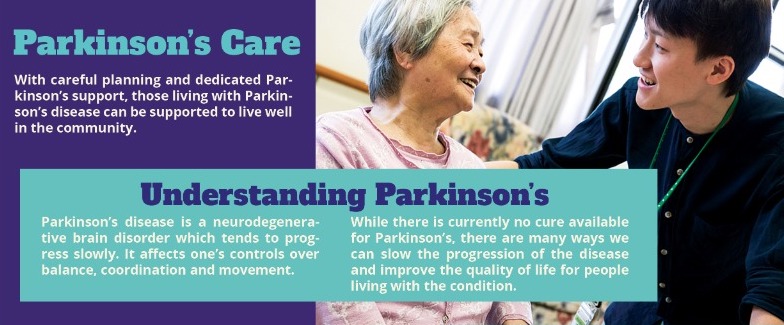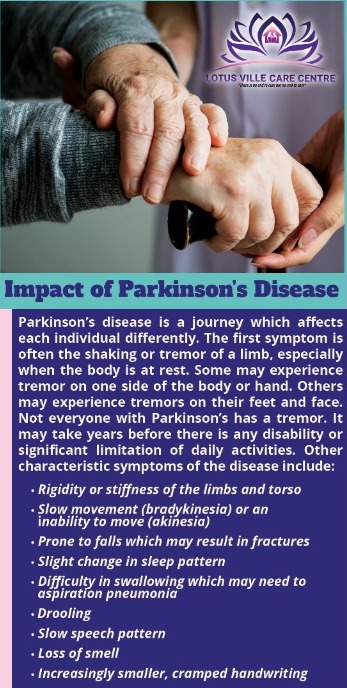
Impact on Emotional Well-Being and Cognitive Health
Parkinson’s disease can also affect one’s emotions and cognition abilities. Some individuals may develop depression and visual hallucinations. These mood changes may bring on worsening function, leading to a decreased quality of life. It is vital to tend to emotional health to keep this cycle at bay.

Counselling and a strong network of support from family and community is necessary for one to lift stress, foster new friendships and prevent isolation. People with Parkinson’s may have an increased risk of developing a form of dementia, which leads to the decline of the brain and its abilities in judgement, language, planning and behaviour.
Supporting a Loved One with Parkinson’s
A diagnosis of Parkinson’s disease can be life-changing for both the person diagnosed and their loved ones. It is crucial for caregivers to take time to look after yours as much as possible.
Always keep in mind that Parkinson’s is unique to the individual; therefore there will be variations in communication changes. As a caregiver or close family member, allow the person with Parkinson’s adequate time to respond when engaged in conversation and try not to speak for them.